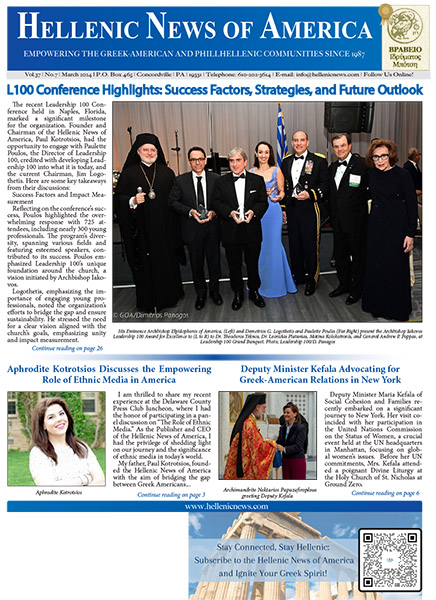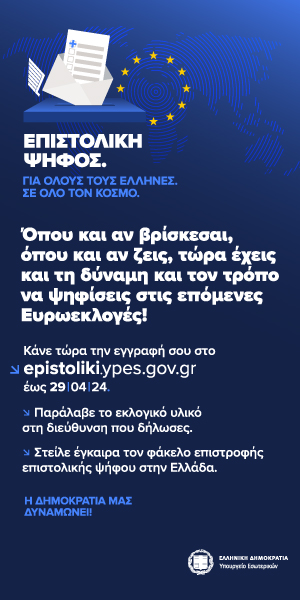The Memory of the Holy New Hieromartyr and Equal to the Apostles, COSMAS of AITOLIA
Saint Cosmas was born in a small village in Aitolia called Megadendron, in the diocese of Arta (in about 1714). His parents, simple and devout people, brought him up in the fear of God and love of the Scriptures. At about the age of twenty, he went to the Holy Mountain of Athos to study at the Academy, which had been founded as a dependency of the Monastery of Vatopedi, where the famous Eugenios Bulgaris was teaching. But the reactions provoked by the founding of this establishment, which spread the spirit of the Enlightenment into the very heart of the citadel of Orthodoxy, quickly forced Bulgaris and other eminent professors to leave Athos, and the Academy very soon fell into decline (1759). This was for the young Cosmas a sign of Providence; and, turning back on his studies, he embraced the monastic life in the Monastery of Philotheou, where his zeal for ascetic striving and his devotion made him worthy to be ordained priest shortly after his monastic profession. The blessed man had, from his youth, had a great desire to spread the Word of God around him, to such a degree that he said that the salvation of his brethren was devouring him as a grub eats away a tree from inside. In these difficult time for the oppressed Greek people, ignorance of the rudiments of the Faith and of Christian culture led to the neglect and decline of morals, so that the preaching of the Gospel clearly became the most important task. But, warned by the teaching of the Fathers, Cosmas did not want to engage in apostolic life through his own will. Desiring to learn if this was God’s will, he randomly opened the Scriptures one day, and his eyes lit on these words of the Apostle: Let no man seek his own, but every man another’s (I Cor. 10:24). Thus enlightened by the Word of God, and after having taken counsel of the fathers of the Holy Mountain, he went to Constantinople to receive the blessing of Patriarch Seraphim II (1757-61) and to take a few lessons in rhetoric from his cousin, Archimandrite Chrysanthus, who was later to become the director of the Patriarchal Academy and then of the school on Naxos.
The new apostle began his preaching ministry in the churches around Constantinople, and pushed on into the eastern parts of Greece: Naupacte, Brachori, Mesolongion and Thessaly, then returning to Constantinople. After having withdrawn to Athos for a time, he received authorization from Patriarch Sophronius II (1774-80) to go and preach in the Cyclades, in order to console the people who had been discouraged by the failure of an uprising brought about by Russia (1775). He returned thence to make a retreat in the monasteries, thus completing seventeen years of life on the Holy Mountain. But his heart, burning with love for his brethren, would not allow him to stay there. He therefore left for Thessalonica, stayed briefly in Beroea and travelled throughout Macedonia, gathering great crowds of the faithful who listened to him with contrition.
From Cephalonia, he went to the island of Zakynthos and then on to Corfu, going thence to Epirus. There he found that Christianity was in a parlous state, and he confirmed the Orthodox faith there and put a stop to the people’s conversion to Islam. Helped by God’s grace, Saint Cosmas worked wonders in these regions, which have, to this day, remained impregnated with echoes of his preaching. Through his exhortations, he succeeded in restoring a Christian way of life to the people.
His words were simple, able to be understood by all, using images and expressions taken from everyday life; but they were also full of the gentlessness, peace and joy that can only be the gift of the Holy Spirit. They had the virtue of penetrating straight to the souls of his hearers and of immediately being received with enthusiasm as the expression of the will of God. As no church would have been able to contain the crowds that gathered round the new apostle, he preached in the open air, standing on a portable platform beside a great Cross that had been stuck in the ground, and which, after he had left, became a source of healing and consolation for both bodily and spiritual ills. He taught the Christians to live according to Christ’s commandments and to observe Sunday, the Lord’s Day, setting aside their everyday work to go to church and hear the Word of God. Wherever he went, he founded schools – a task that he considered fundamental – for the teaching of Greek and the Holy Scriptures (As he himself testifies in a letter to his brother, written a few months before his death, he had founded 200 primary schools and ten schools for the teaching of Greek). He persuaded the rich to devote their surplus to almsgiving and the distribution of devotional books, icons and prayer-ropes, and also urged them to donate baptisteries to the churches for the baptism of children.
A crowd of two or three thousand of the faithful followed him everywhere, becoming a veritable army of Christ that travelled through the whole of Albania, following the Saint, looking on him as Enoch or the Prophet Elias who had come to proclaim the dawn of a new age. Before beginning his preaching, he would celebrate Vespers or a Paraklisis (service of intercession) to the Mother of God; then, after having spoken, he left it to the fifty-or-so priests who accompanied him to continue his work by the hearing of confessions, the celebration of the Office of Holy Unction, of Holy Communion and personal visits to each person.
Although the Saint’s preaching had no polemical content, confining itself to the teaching of the evangelical virtues, and also by virtue of his having appeared before the pasha of Ioannina and had received great honour from him, certain Jews, excited by jealousy and furious ever since the Saint had made them hold their Sunday markets on a Saturday, persuaded the pasha to put an end to his life.
Cosmas had formed the habit, on arriving in an area in which he desired to preach, of going personally to ask the blessing of the local bishop, and then sending one of his disciples to ask permission of the Turkish civil authorities. Arriving one day near the Albanian village of Kolikontasi, he learned that the pasha of the region, Kurt Pasha, lived not far away at Berati. Despite the urgings of those around him to prudence, the Saint decided to go himself and seek authorization to preach from the local official, who made it known to him that he had received orders to hand him over to Kurt Pasha. On hearing these words, Saint Cosmas realized that the moment had come crown his work with martyrdom, and he gave thanks to Christ for having counted him worthy of such honor. The next day, August 24 1779, seven soldiers took him under escort on the pretext of sending him to Kurt Pasha; but, after two hours on the road, they stopped by the river Paso and told him that he had already been sentenced to death by execution. The Saint, filled with joy and thanksgiving to God, blessed the four corners of the universe with the Sign of the Cross and prayed for the salvation of all Christians. He refused to have his hands tied, so that he could cross them, and it was without offering the least resistance that he was hanged on a tree and gloriously gave his soul into God’s keeping. He was then sixty-five years old.
The Christians, who had rushed to gather the Saint’s body, thrown into the river by his executioners, into their nets, were left empty-handed, but a priest called Mark, being armed with prayer, discovered the precious relics three days later, floating upright on the waves as though the Saint were still alive. He was taken out of the water and, after being clad in his monastic habit, was given worthy burial. A great many miracles were wrought at his tomb through the intervention of his relics. In 1813, Ali Pasha of Ioannina, whose glorious future Saint Cosmas had predicted, had a church and monastery built at his tomb, and he gave his skull, in a silver reliquary, to his Christian wife Basilica (The Saint’s relics, having escaped the torment of Atheism in Albania, were found in the church of an abandoned monastery. Stolen in 1995, they were bought back and returned to the Albanian Church in 1998 and are now the object of fervent veneration by the Orthodox and a symbol of the restoration of the Faith in the land.)
Saint Cosmas, whose preaching had contributed in a decisive way to the awakening of faith and national feeling among the Greeks, was immediately venerated by the people as a new apostle and a ‘prince among the new martyrs’, but his veneration was only officially recognized by the Patriarchate of Constantinople in 1961.
-From The Synaxarion: The Lives of the Saints of the Orthodox Church, Volume VI: July, August by Hieromonk Makarios of Simonos Petra, translated from the French by Mother Maria (Rule) and Mother Joanna (Burton), Holy Convent of The Annunciation of Our Lady Ormylia (Chalkidike), 2008.






